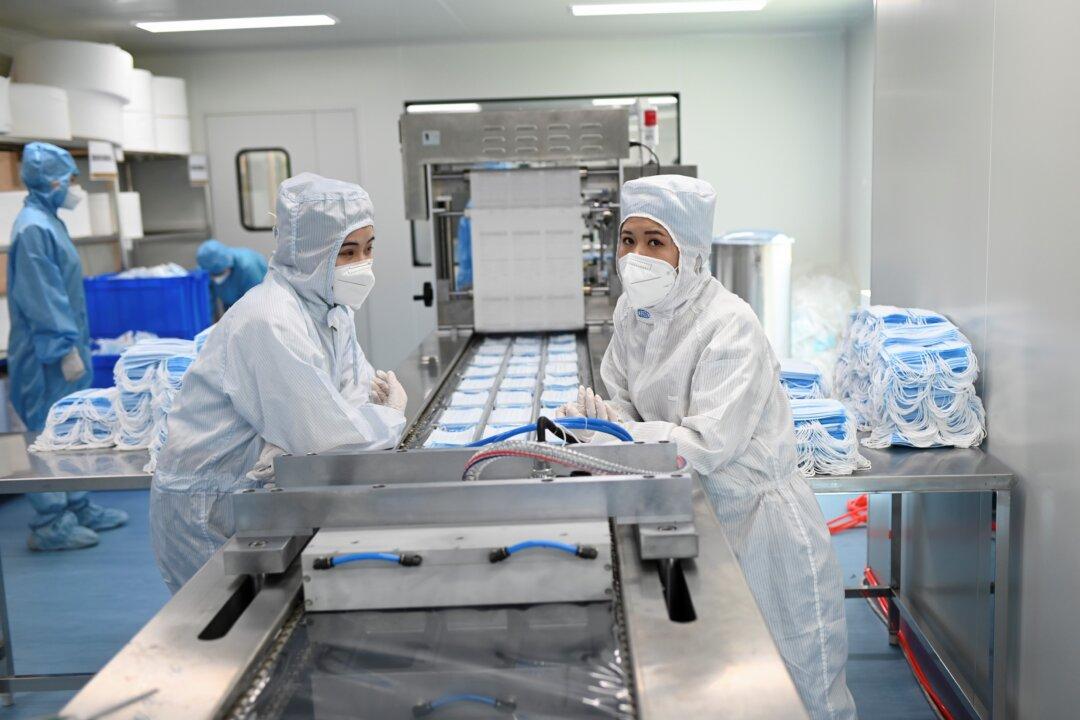Germany, Belgium, and Holland are the latest countries to reject Chinese-manufactured medical supplies after the quality of the goods was found to be sub-standard.
Protective masks are one of the key personal protective equipment (PPE) in efforts to prevent the spread of the CCP (Chinese Communist Party) virus, commonly known as novel coronavirus. Medical staff need them to protect themselves while treating patients, while ordinary citizens need to wear them when going outside.





